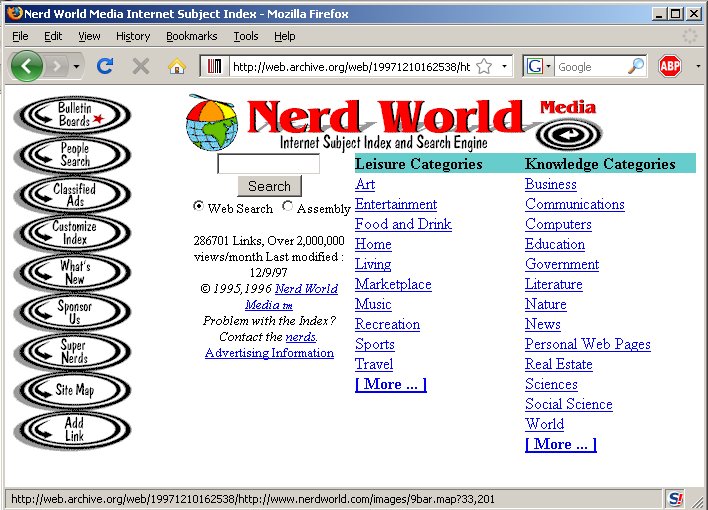by Max Friar
Does Your Online Profile Matter When Selling Your Company?
I read a very interesting article the other day that does a great job of summarizing why, in general, you should care about your online profile, and definitely why you should when you go to sell your business. Here is a link to the article. The main point is that one of the first things that buyers and their representatives do when they are researching your business is to go to Google and type in your name and your business name. Go ahead, stop right now and do it.
A couple of questions for you.
1. Does your company’s website come up first?
Keep in mind that if you do not have a website, then chances are another website like Google, yellowpages.com, manta.com, etc. have probably created a listing on their website for your company. The problem is is that the information is likely incorrect and may not be representative of your company or its service/product offerings. Worse, it could have erroneous address, phone or other information.
Advice: Services like yext.com offer you the ability to correct and consolidate your company’s information across dozens of these listing directory sites. Additionally, you can often claim your profile on these directory sites and individually update your information so that it is correct. Lastly, local companies exist (SEO companies) that can assist you with your online presence.
If you do not have a website, it is highly recommended that you obtain one. Websites are the modern-day brochures. If you do not have one buyers may assume your company is antiquated and has not invested in staying modern. This could be interpreted as not caring about your company’s image. Websites do not have to be expensive or time-consuming endeavors. Companies for example godaddy.com and squarespace.com offer low-cost website-building tools to help average Joes build decent-looking sites. Godaddy has pretty good-looking options for $5/month!
2. Does your website look like this?
I am the last person that wants to call your baby ugly, but if you have a website that was designed or last updated pre-2007, you might as well not have one at all. The reasons are similar to those above: buyers will think that you have neglected your business; and chances are your business has changed materially in the past 10 years, however your site does not reflect these changes. The former could cause buyers to have misconceptions about what you do and even lose interest before spending any time.
Advice: Along with the suggestions above, you would be amazed at how easily you can have a custom website created and maintained. The Calder Capital website was created using a stock WordPress theme over the course of one weekend. It is just as easily updated a Word document (which begs the question of why I don’t write more blogs). The design, the layout, the functionality are all essentially “pre-programmed” for ease of use. This is the way that most of the web works now. For $2,500-$5,000 many WordPress developers will deliver a very attractive, personalized, modern, functional, scalable and easily-maintained website.
3. What else shows up on Page 1 of Google when you type in your company name?
As the article states: “negative attention is an unfortunate reality for many business sellers, especially if it is highly visible online. Unfortunately, information about court proceedings, bankruptcies, police reports and other negative events can live online for years. Hopefully, however, you have long-since resolved these issues and you can be up-front with would-be buyers about what happened, how it was resolved and why it’s no longer an issue. Additionally, the more positive content you create, the further this negative news will be pushed down in the online search, reducing its visibility.”
The last sentence is very important, critical even. You have probably heard of online “reputation management”. What reputation managers do is twofold: 1) they contact sites where negative reviews or negative information is posted about your company and try to get it removed. This is the best way to clean up your online reputation because the information literally gets wiped away; and 2) they create new content and promote it, hoping to displace the existing negative content. For example, if you Google your company, “ABC Widgets, Inc” and the 3rd entry is a court case about how you were sued or your company previously filed bankruptcy, one potential solution is to create social media profiles and a blog for your company. If the Facebook Page, LinkedIn page, Twitter profile and your blog at blogspot.com are titled “ABC Widgets, Inc.” it is highly likely that Google will index those pages above the dated and negative content. This is because Google ranks authoritative sites like Facebook and Twitter highly and rewards sites that offer fresh content (i.e. new blog posts and social media updates).
4. Are there any negative reviews of your site?
Many sites like yelp.com and Google+ allow anonymous users to post reviews. While certainly it’s becoming more daunting to post negative reviews due to lawsuits, etc, these reviews can have a huge impact on perceptions of your business. The article states, “There may be little you can do to remove negative customer comments from Yelp and other review sites. But rather than ignoring negative reviews, make an effort to respond to them and convert complaints into positive feedback about how your business goes the extra mile to satisfy its customers.”
5. Now Google your name. Chances are images come up. Are you posing like this?
Advice: go and get new photos taken of you and your staff. Make sure to tag the photos appropriately or have your web developer do it. Not many people know this, but you can embed your name and company name in your graphics so that Google can properly index them.
6. What does your social media look like?
First of all, if you will never update you social media profiles, then do not start them. Buyers do not want to visit your Facebook Page last updated on October 2, 2008. All this does is reinforce that you are neglecting your company or at the very least its image and marketing. The article states: “Many small businesses have created pages on social media sites like Facebook and Twitter. If you haven’t visited your social media pages in a while, invest time and energy to strengthen your social presence. By updating your profile and becoming more active, you can make your company more attractive to buyers. It may even be worthwhile to invest in strategies, such as social contests and giveaways to significantly increase your social following prior to listing.”
Advice: There is a really cool program called Hootesuite which allows you to amalgamate all of your social media profiles into one application and then schedule updates. This means that you could take one or two Sundays a month and schedule what you will say online for an entire month!
7. Google your services or product + your primary geographic area. For example: “propane + grand rapids mi”. What comes up?
If your company is not appearing on Page 1, preferably towards the top, it may be wise to explore search engine optimization services (SEO). While this is certainly not a deal-breaker today, buyers are increasingly looking at acquisition targets’ Internet presence in terms of the ability for a company website to generate sales inquiries. Because 70%+ of people are regularly using Search Engines to find local services, it is becoming imperative that your company captures some of this search activity.
To conclude, much of your business’ “curbside appeal” is shifting to its web presence. Cleaning up your company’s appearance on the web is not as difficult or costly as you think.
If you are interested in talking with Calder Capital or Max Friar please fill out the form below:
Max Friar is Managing Partner of Calder Capital, LLC, a Grand Rapids, MI-based mergers and acquisitions firm. Max is passionate about helping to educate and guide business owners about and through the business-for-sale process. He specializes in transactions ranging in size from $500,000 to $5,000,000.


